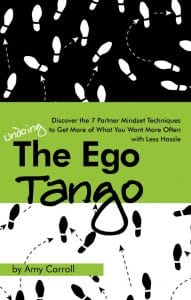For many people being authentic is one of their highest values, which drives much of their behaviour. At times, some of these behaviours can be problematic (example below).
In these cases, I recommend my clients use an approach I call TSA – “Temporary Suspension of Authenticity”, which can feel incredibly uncomfortable for many of us. When clients resist using TSA I often follow up with the question, “Do you want to be right or do you want to be happy?”. What I mean by that is, if we restrict ourselves to being 100% real in order to always be aligned with our value of being authentic, there’s a risk we will find ourselves very unhappy.
Anybody can become angry — that is easy, but to be angry with the right person and to the right degree and at the right time and for the right purpose, and in the right way — that is not within everybody’s power and is not easy.
Aristotle
Let’s take this example. During a team meeting your colleague has been sarcastic, aggressive, maybe even bent the truth a bit. This could understandably leave you feeling frustrated, angry and wanting to justifiably confront them.
The risk is you will do it in an aggressive, hostile or accusatory manner, also known as righteous indignation (shout out to Aristotle). At face value this is a reasonable and unfortunately common reaction. Unfortunate because all those behaviours may seriously damage the relationship and take a lot of time and effort to repair. Additionally, if done publicly it could backfire and damage your credibility as you might appear explosive.
When I recommend to my clients to suspend their authenticity, I’m not suggesting they lie about how they’re feeling. I’m suggesting they suppress, manage and control the indicators (voice, body language, words) which can cause damage to the relationship.
By temporarily suspending your “external” authenticity (avoid a loud voice, harsh words, sarcastic tone or rolling eyes) and instead confronting the other person using a calm, controlled and respectful manner, you still remain authentic. This way, you express your frustration and anger in a gracious manner and avoid damaging the relationship or your reputation.
Watch this video of Mark Bowden, a body language expert, who demonstrates the pitfalls of being authentic and the payoff to being inauthentic when necessary.
Happy Partnering!
Amy











